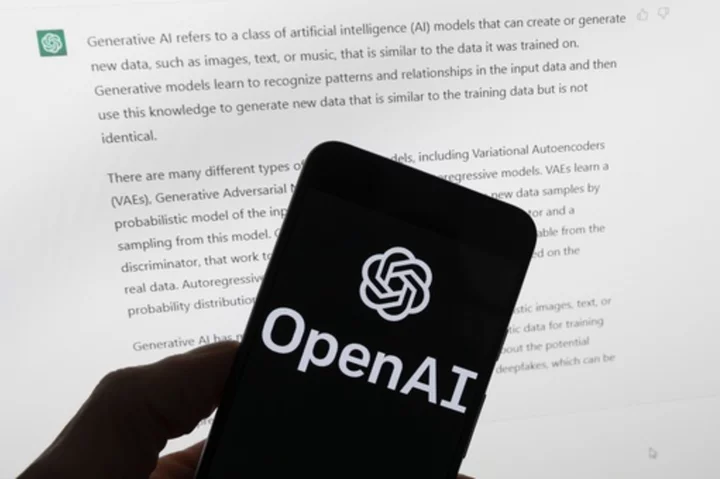
Quiet Day on Reddit: Major Subreddits Go Dark to Protest API Changes
Numerous subreddits shut down today to protest the controversial plan to charge for access to
2023-06-12 23:47

Eskom Allowed to Sidestep Pollution Reduction Rules at Key Plant
Eskom Holdings SOC Ltd., the world’s biggest sulfur dioxide emitter, has been given permission to bypass pollution abatement
2023-06-24 19:28

Apple's high-yield savings account hits over $10 billion in customer deposits
Apple’s high-yield savings account offered by its partner Goldman Sachs has reached over $10 billion in customer deposits,
2023-08-03 06:57

Female frogs fake their own deaths to avoid sex with overzealous males
Some female frogs will go to the extent of faking their own deaths to avoid sex with their male counterparts, a new study has revealed. Researchers in Berlin and Finland focused on the European common frog for their investigation owing to the often alarming nature of the species' mating process. The short breeding season means that several males often cling to a single female – in a pile-on that can cause the female to drown. (So, pretty understandable that they might want to avoid this.) For the research published in the Royal Society Open Science, European common frogs were collected and divided into tanks where there were two females and one male in each. Before this research, it was thought that the females couldn't defend themselves against the aggressive amorous act. However, a number of the wily participants displayed the three avoidance behaviours. A rotation technique to escape mating was a popular option – carried out by 83 per cent of the females. While nearly half of them (48 per cent) mimicked how male frogs sound to trick them into letting them go. In 33 per cent of the females, the researchers recorded a stiffening of arms and legs for two minutes, in a convincing bid to play dead. Out of the females who got mounted by a lustful male, almost half were able to escape thanks to at least one of these avoidance behaviours. “The smaller females also showed the full repertoire of behaviours more often than the larger females," the researchers noted, and younger females were more likely to pretend they were dead. However, question marks remain on whether the frogs fake their death as a conscious choice or whether it is a stress response or even a means to test the male’s strength and endurance. “I think even if we call this species a common frog and think we know it well, there are still aspects we don’t know and perhaps haven’t thought about," Dittrich explained to The Guardian. Sign up to our free Indy100 weekly newsletter Have your say in our news democracy. Click the upvote icon at the top of the page to help raise this article through the indy100 rankings.
2023-10-12 21:15

Microsoft Bond Investors Approach Activision Deal With Caution
Microsoft Corp.’s creditors turned slightly more cautious on the software company’s longer-term, high-quality debt after a US judge
2023-07-12 01:51

FPT and Silvaco Ink Deal, Advancing Semiconductor Workforce and Business Expansion
NEW YORK--(BUSINESS WIRE)--Sep 22, 2023--
2023-09-22 23:57

Fortnite: 24.40 patch notes update on ranked mode, server downtime, spider-verse and balance changes
Fortnite 24.40 update teases new 'Star Wars' challenges
2023-05-18 18:16

Cambodia: Hun Sen quits Facebook on eve of poll campaign
Facebook parent Meta's oversight body has recommended his suspension over an inflammatory video.
2023-06-30 12:48

The best left-backs to sign on Football Manager 2024
The best left-backs to sign on Football Manager 2024, including Valentin Barco, Ferland Mendy, Lucas Digne & more.
2023-11-23 23:53

Tristan Tate calls fan 'poor', shuts him down for urging investment in stocks instead of cars
Recently, a Twitter user engaged in an online feud with Tristan Tate, which eventually got the fan blocked
2023-07-18 14:27

South Africa Wants $8.5 Billion Climate Plan Wrapped Up by COP28
South African Environment Minister Barbara Creecy said she expects the long-delayed implementation plan for an $8.5 billion climate
2023-09-07 18:21

Germany to Raise Carbon Price to €40 in 2024, €50 in 2025
Germany will lift a levy on polluting fossil fuels used in housing and transportation to €40 ($44) per
2023-08-10 00:16
You Might Like...

Analysis-Arm's clients turn IPO into tug of war for chip influence

Uber Eats’ New AI Chatbot Will Offer Recommendations to Customers

Study discovers vast numbers of women experience mental health issues because of period pain

LG Gram SuperSlim Review

Biden Will Award $7 Billion for Hydrogen Hubs Across the US

Ireland and Apple await major development in long-running EU tax dispute

The Yeedi Mop Station Pro looks futuristic as hell — but is it worth the investment?

In global rush to regulate AI, Europe set to be trailblazer
